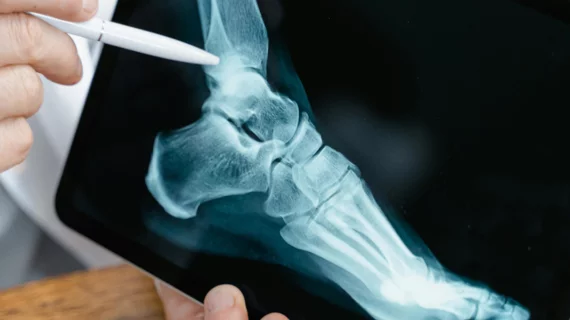For radiology trainees eager to serve the less fortunate, home is where the need is
Radiology residents are no slackers when it comes to “giving back.” However, many seem to believe they must travel abroad to find medically underserved populations in serious need of charitable medical care.
That perception is at odds with reality: More than 3,500 communities right here in the U.S. would greatly benefit by volunteer physician services.
The reminder comes from members of the Trainee Editorial Advisory Board at RadioGraphics, the primary education journal published by the Radiological Society of North America.
“There are many great local programs that not only give the trainee valuable experience, but more importantly, build sustainable, life changing impacts for the community,” says John Karp, MBChB, a radiology resident at Penn Medicine, in an interview with RSNA News.
Karp lead-authored a paper on the topic that RadioGraphics published in December. RSNA amplifies the material in a news item posted April 18.
The item also quotes co-author Charlotte Chung, MD, PhD, a neurointerventional radiology fellow at NYU Langone Health.
“If you’re doing something that’s local, you can leverage the resources and expertise that are available to you in your institution, such as your co-residents, attendings and techs,” Chung points out.
Chung speaks from direct experience, having worked with an established nonprofit clinic in Atlanta while training at Emory Healthcare. The clinic served a large refugee population, and the radiology residency program partnered closely with clinic leadership and staff.
“I recommend establishing relationships with clinicians at the nonprofit clinics because patients don’t typically show up knowing what imaging study they need or whether they even need to be imaged,” Chung says. “There are a lot of logistics involved, particularly when patients need follow-up related to imaging findings. By developing these partnerships, you can provide imaging services over a long period of time.”
In the journal paper, Karp and co-authors name as other local volunteer options mobile mammography screening operations, remote or in-person mentoring opportunities and existing or startup outreach projects.
The authors write:
Whether trainees start a project with their institution or collaborate with a preestablished organization, they will gain invaluable experiences that can make a long-lasting impression on their local communities.
“As radiologists, we are fortunate enough to be not only clinicians but also diagnosticians and interventionalists,” Karp adds for RSNA News. “We have a multitude of skills that we can bring to a community and give back.”
Read the journal paper here and the RSNA news item here.

